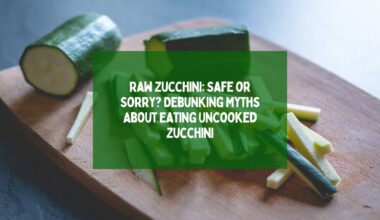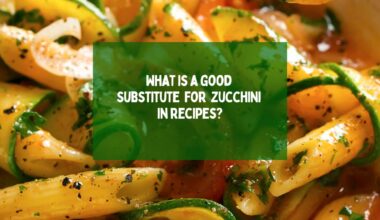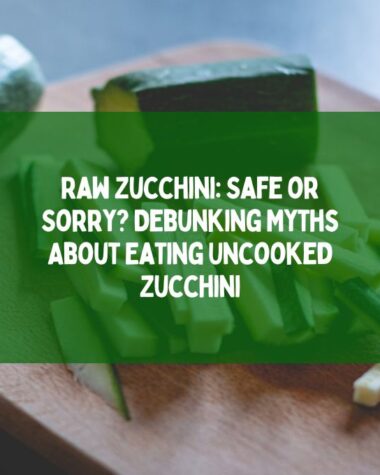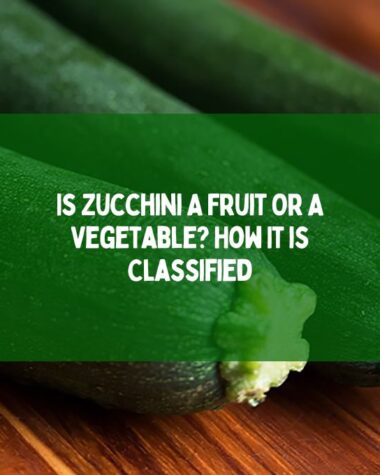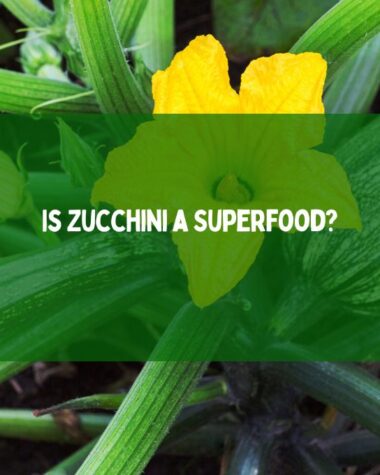Rabbits are adorable and furry creatures that make wonderful pets. As responsible rabbit owners, it is crucial to provide them with a balanced and nutritious diet.
While hay, pellets, and fresh greens are staples in a rabbit’s diet, you may be curious about expanding their food options. One common question that arises is, “Can rabbits eat zucchini?”
In this article, we will delve into the world of rabbits and zucchini, exploring whether it is a safe and healthy choice for your furry friend.
So, let’s hop right in!
Can Rabbits Eat Zucchini?
Many people enjoy zucchini, a versatile summer squash. However, when it comes to rabbits, it is essential to evaluate its suitability as part of their diet. Yes, rabbits can eat zucchini.
Rabbits are herbivores, and their digestive systems are designed to process a wide variety of plant-based foods. To determine if zucchini is safe for rabbits, we must consider its nutritional content and potential risks.
Related Reading
- Raw Zucchini: Safe or Not? Debunking Myths About Eating Uncooked Zucchini
- Reasons for Brown Spots on Zucchini Leaves
- From Garden to Danger: Exploring the Causes of Poisonous Zucchini
- Black Spots On Zucchini Leaves: Reasons & Prevention
- Harvesting Courgettes: Storing And Preserving
Nutritional Benefits of Zucchini
Zucchini is a low-calorie vegetable that contains several essential nutrients beneficial to rabbits. It is an excellent source of dietary fiber, which aids in maintaining healthy digestion in rabbits.
Additionally, zucchini is rich in vitamin C, an important antioxidant that supports the immune system. Other nutrients found in zucchini include vitamin K, vitamin B6, potassium, and manganese, which contribute to overall rabbit health.
Rabbit’s Digestive System and Zucchini
Rabbits possess a sensitive digestive system that relies on a high-fiber diet to function optimally.
The majority of their diet should consist of hay, grass, and leafy greens. While zucchini is generally safe for rabbits to consume, it should only be offered as an occasional treat.
Incorporating small portions of zucchini into a balanced rabbit diet can provide additional nutrients and variety.
Feeding Zucchini to Rabbits: Guidelines and Precautions
When introducing zucchini to your rabbit’s diet, it is essential to follow some guidelines and take the necessary precautions.
Moderation is Key
Zucchini should be offered in moderation, as too much can upset a rabbit’s delicate digestive balance. Start by introducing small portions and monitoring your rabbit’s response.
Fresh and Organic
Always choose fresh, organic zucchini for your rabbit. Avoid zucchinis that are moldy or overripe, as they can cause digestive issues.
Wash and Slice
Before feeding zucchini to your rabbit, thoroughly wash it to remove any pesticides or dirt. Cut the zucchini into small, manageable slices, making it easier for your furry friend to eat.
Introduction Period
Introduce zucchini gradually into your rabbit’s diet. Begin by offering a small slice and observing your rabbit for any adverse reactions. If your rabbit shows signs of digestive upset, such as diarrhea or bloating, discontinue feeding zucchini immediately.
Monitor Consumption
Keep an eye on the quantity of zucchini your rabbit consumes. While zucchini can be a healthy addition to their diet, it should not replace essential foods like hay or leafy greens.
Variety is Key
Remember that zucchini should be just one component of a varied diet. Offer your rabbit a diverse range of vegetables and herbs to ensure they receive a wide array of nutrients.
Potential Risks and Considerations
While zucchini is generally safe for rabbits, there are a few potential risks and considerations to keep in mind:
High Water Content
Zucchini has a high water content, which can lead to loose stools or diarrhea if consumed excessively. Ensure your rabbit has access to fresh water at all times to prevent dehydration.
Oxalates
Zucchini contains oxalates, which, in large amounts, can contribute to the formation of bladder stones in rabbits. To mitigate this risk, ensure your rabbit has a balanced diet with a variety of vegetables and does not rely solely on zucchini.
Allergic Reactions
While rare, some rabbits may have allergies or sensitivities to zucchini. If you notice any adverse reactions, such as itching, hives, or respiratory distress, discontinue feeding zucchini immediately and consult a veterinarian.
Avoid Seeds
Remove the seeds from the zucchini before offering it to your rabbit. The seeds can pose a choking hazard or cause digestive issues.
Conclusion
Rabbits can eat zucchini as part of a balanced diet. Zucchini offers various nutritional benefits and can be a healthy treat for your furry friend. However, it is essential to feed zucchini in moderation and ensure it does not replace essential foods like hay and leafy greens.
Always monitor your rabbit for any adverse reactions and consult a veterinarian if you have concerns. Remember, a diverse diet with a range of vegetables is crucial for your rabbit’s well-being.
So go ahead and share a small slice of zucchini with your bunny companion!
Related Reading
- How to Preserve Tomatoes? Top Ways for Tomato Preservation
- The Vibrant Charm of Orange Pumpkins: Exploring Their Symbolism and Culinary Delights
- What is a Market Gardener? All You Need to Know About Marketing Gardening
- Cucumber Slicing: How to Slice a Cucumber Perfectly?
- Yellow Spots on Eggplant Leaves: Why Are My Eggplant Leaves Turning Yellow?
FAQs about Rabbits and Zucchini
Can baby rabbits eat zucchini?
It is generally recommended to introduce solid foods gradually to baby rabbits. Consult a veterinarian before including zucchini in a baby rabbit’s diet.
Are there any alternative vegetables to feed rabbits?
Yes, several vegetables are safe and healthy for rabbits, such as kale, spinach, cilantro, and carrots. Always introduce new foods slowly and monitor your rabbit’s response.
